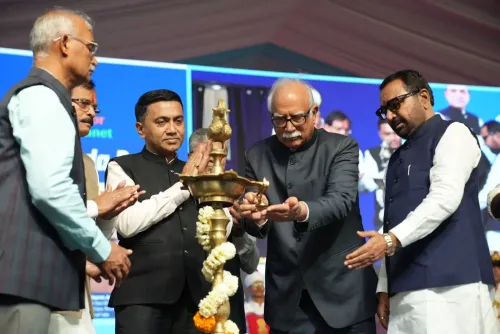RBI to Broaden Co-Lending Scope to Boost Credit Access

Synopsis
Key Takeaways
- RBI is revising co-lending guidelines.
- New framework includes all regulated entities.
- Co-lending partnerships can involve various loan types.
- RBI aims to broaden credit access sustainably.
- Public comments are invited on draft guidelines.
New Delhi, April 9 (NationPress) Reserve Bank of India (RBI) Governor Sanjay Malhotra revealed a significant proposal on Wednesday aimed at liberalizing the RBI’s co-lending regulations for banks and NBFCs. This proposal seeks to broaden the existing limitations that confine co-lending to priority sector lending.
The current structure restricts co-lending partnerships between banks and non-banking financial companies (NBFCs) to priority sectors, including agriculture, micro-enterprises, and loans for marginalized groups.
The RBI is set to roll out a more inclusive framework that encompasses all regulated entities and various loan types.
Currently, co-lending guidelines apply solely to banks and NBFCs involved in priority sector loans. Considering the advancement of lending practices and the capacity of such arrangements to meet the credit needs of a broader population sustainably, the RBI has opted to expand the co-lending scope and introduce a universal regulatory framework applicable to all co-lending arrangements among regulated entities. Draft guidelines are now available for public review, as stated by the RBI.
“To leverage the vast potential of these lending partnerships, we propose to extend them to all regulated entities and all loans—whether they fall under the priority sector or not,” Malhotra stated during the monetary policy review.
Co-lending refers to a collaboration between a primary lender, usually a bank, and a co-lender, which can be another bank, NBFC, or a fintech company. Both lenders contribute to the total loan amount, sharing the financial responsibility and potential returns.
The associated risks and rewards of the loan are also divided between the lenders in accordance with their contribution.
Furthermore, the RBI has resolved to standardize and consolidate guidelines concerning non-fund based (NFB) facilities such as guarantees, letters of credit, and co-acceptances. These entities play a crucial role in enhancing efficient credit intermediation and facilitating smooth business transactions, including trade.
“The updated guidelines will include a reassessment of protocols for issuing partial credit enhancement by regulated entities, aiming to broaden funding avenues for infrastructure financing. Draft guidelines are now available for public feedback,” the RBI statement highlighted.









